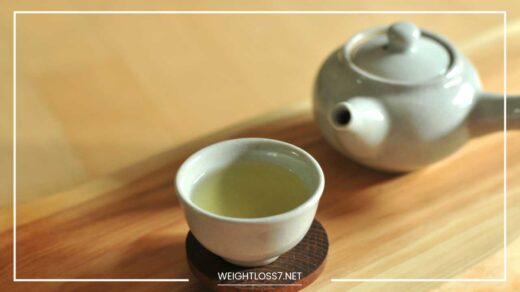Natural Skin Care Guide: Glow From Within

Natural Skin Care
Natural Skin Care: A Guide to Glowing from Within
The quest for radiant, healthy skin is a timeless pursuit. We’re bombarded with countless products and procedures, all promising a youthful, blemish-free visage. But what if the answer lies not in complicated routines and harsh chemicals, but in a return to nature’s bounty?
Enter the world of natural skin care – a philosophy that harnesses the power of plants, minerals, and simple practices to nurture your skin’s natural beauty.
Why Go Natural?
There are several compelling reasons to embrace natural skin care:
-
Gentle on Your Skin: Many conventional products contain synthetic ingredients that can irritate and disrupt your skin’s delicate balance. These ingredients can strip away natural oils, leading to dryness, redness, and even breakouts. Natural ingredients, on the other hand, are often gentler and better tolerated, even for sensitive skin types. They work with your skin’s natural processes to promote a healthy, balanced complexion.
-
Harnessing Nature’s Power: Plants are nature’s powerhouses, packed with beneficial compounds like antioxidants, vitamins, and fatty acids. These natural ingredients nourish and protect your skin in a multitude of ways. Antioxidants fight free radicals, which damage skin cells and contribute to wrinkles and premature aging. Vitamins like A, C, and E promote cell turnover, leaving your skin looking brighter and more even-toned. Fatty acids like those found in shea butter and coconut oil hydrate and strengthen the skin’s natural barrier, keeping it plump and protected.
-
Sustainable Choice: Natural products are often cruelty-free and formulated with organic ingredients, making them a more eco-conscious choice. You can feel good about what you put on your skin knowing it aligns with a sustainable lifestyle. Natural ingredients are often biodegradable and less likely to harm the environment. Additionally, by supporting companies that prioritize natural ingredients, you’re encouraging responsible sourcing practices.
Beyond the benefits listed above, natural skin care often has a holistic approach to beauty. It encourages healthy habits that contribute to overall well-being, such as drinking plenty of water and eating a nutritious diet.
Building Your Natural Skin Care Routine
The key to a successful natural skin care routine is a personalized approach. Everyone’s skin is unique, with different needs and sensitivities. Here’s a breakdown of the essential steps, along with natural ingredient options to cater to various skin types:
1. Cleanse:
- Morning: Use a gentle cleanser like a milk or cream to remove any night oils and sweat without stripping your skin’s natural moisture barrier. Look for ingredients like honey, oat milk, or cucumber extract, which are known for their cleansing and soothing properties.
- Evening: Opt for a cleansing balm or oil to remove makeup and sunscreen. Follow with a gentle cleanser to remove any residue. Natural oils like jojoba oil, grapeseed oil, or hemp seed oil are excellent choices for removing makeup without clogging pores.
Natural Cleansing Options by Skin Type:
- Dry Skin: Opt for cleansing milks or creams with ingredients like coconut milk, aloe vera gel, or colloidal oatmeal. These ingredients gently cleanse while providing extra hydration.
- Oily Skin: Look for cleansers with kaolin or bentonite clay, which absorb excess oil without being overly drying. Tea tree oil can also be helpful for oily skin due to its antibacterial properties, but use it diluted to avoid irritation.
- Combination Skin: Choose a gentle cleanser that’s free of harsh sulfates and alcohols. Look for ingredients like honey, jojoba oil, or green tea, which can balance both oily and dry areas.
2. Tone (Optional):
Toners are often seen as a necessary step, but they can be quite astringent and disrupt the skin’s natural pH balance. If you feel the need for a toner, opt for a hydrating one made with witch hazel, rosewater, or green tea.
These ingredients offer gentle toning properties without stripping the skin. Consider a DIY toner made with green tea or cucumber water for an extra refreshing touch.
3. Moisturize:
Moisturizing is crucial for all skin types, even oily skin. Natural moisturizers provide hydration without feeling heavy or greasy. Look for ingredients that mimic the skin’s natural sebum, such as jojoba oil, shea butter, or aloe vera gel.
Hyaluronic acid is another excellent moisturizer, as it holds up to 1,000 times its weight in water, plumping and hydrating the skin.
Natural Moisturizing Options by Skin Type:
- Dry Skin: Choose rich, thick moisturizers like shea butter, cocoa butter, or avocado oil. These ingredients deeply nourish and hydrate dry skin.
- Oily Skin: Opt for lightweight, oil-free moisturizers with hyaluronic acid, aloe vera gel, or grapeseed oil. These ingredients provide hydration without clogging pores.
- Combination Skin: Look for a moisturizer that’s labeled as non-comedogenic, meaning it won’t clog pores. Gel-based moisturizers with hyaluronic acid or aloe vera are good options for combination skin.
4. Treat (Optional):
Target specific concerns with natural masks and serums. Here are some natural treatment options for common skin concerns:
- Acne: Use a clay mask with kaolin or bentonite clay to absorb excess oil and fight inflammation. Tea tree oil has antibacterial properties that can help combat breakouts, but use it diluted to avoid irritation. Honey also has antibacterial properties and can be used as a spot treatment for acne.
- Dry Skin: Honey masks or avocado oil serums are excellent for deeply hydrating and nourishing dry skin. Hyaluronic acid serums are also a great option for dry skin, as they attract and retain moisture.
- Wrinkles: Look for ingredients like rosehip oil or sea buckthorn oil, which promote collagen production and reduce the appearance of fine lines. Retinol, a derivative of vitamin A, is another powerful anti-aging ingredient, but it can be irritating to some skin types. Start with a low concentration and gradually increase as tolerated.
5. Sun Protection:
Sun damage is a major contributor to premature aging and skin cancer. Daily use of a broad-spectrum sunscreen with SPF 30 or higher is vital. Look for natural sunscreens containing zinc oxide or titanium dioxide, which offer mineral-based protection without harsh chemicals. Remember, reapply sunscreen every two hours, or more often if sweating or swimming.
Additional Tips for a Natural Glow:
- Exfoliate: Exfoliate your skin 1-2 times a week to remove dead skin cells and promote cell turnover. Use a gentle scrub made with oatmeal, brown sugar, or fruit enzymes. You can also create a DIY scrub with baking soda and honey for a more sensitive approach.
- Hydration from Within: Drink plenty of water throughout the day to keep your skin hydrated from within. Aim for eight glasses of water per day, and adjust based on your activity level and climate.
- Diet Matters: Eating a healthy diet rich in fruits, vegetables, and healthy fats provides your skin with the nutrients it needs to thrive. Focus on consuming plenty of antioxidants like those found in berries, leafy greens, and tomatoes. Omega-3 fatty acids, found in fatty fish and flaxseeds, can also help keep your skin plump and hydrated.
- Sleep Well: Aim for 7-8 hours of sleep each night. Sleep deprivation can lead to dull, tired-looking skin. When you sleep, your skin repairs and rejuvenates itself.
- Manage Stress: Chronic stress can wreak havoc on your skin, leading to breakouts, inflammation, and premature aging. Practice stress-relieving activities like yoga, meditation, or deep breathing to keep your skin healthy and calm.
DIY Natural Skin Care Recipes:
Here are a few easy DIY recipes to get you started with natural skin care:
- Honey Oat Scrub (for all skin types): Mix 1 tablespoon of honey with 1 tablespoon of ground oatmeal and a splash of milk or water to create a gentle exfoliating scrub. Massage onto damp skin and rinse thoroughly.
- Avocado Mask (for dry skin): Mash half an avocado and mix it with 1 tablespoon of honey and 1 tablespoon of olive oil. Apply to clean skin and leave on for 15-20 minutes. Rinse thoroughly with warm water.
- Clay Mask (for oily skin): Mix 1 tablespoon of kaolin clay with 1 tablespoon of apple cider vinegar and enough water to create a paste. Apply to clean skin and leave on for 10-15 minutes, or until slightly dry. Rinse thoroughly with warm water.
Remember, it’s important to patch test any new ingredient on a small area of your skin before applying it to your entire face. This will help you identify any potential allergies or sensitivities.
By embracing natural skin care and incorporating healthy lifestyle habits, you can achieve a radiant, healthy complexion that shines from within.
Remember, consistency is key! The more you prioritize natural skincare and overall well-being, the more your skin will thank you for it.
Advanced Natural Skin Care Techniques:
While the core principles of natural skin care focus on gentle cleansing, proper hydration, and targeted treatments, there are additional techniques you can explore for a more comprehensive approach. Here are some fascinating options:
-
Facial Steaming: Steaming your face opens pores, allowing for deeper cleansing and better absorption of skincare products. Use herbs like chamomile, lavender, or calendula in your steam for added benefits. Chamomile is known for its calming properties, while lavender can help reduce inflammation.
-
Facial Massage: This technique promotes lymphatic drainage, which helps reduce puffiness and improve circulation. It also relaxes facial muscles, potentially minimizing the appearance of wrinkles. Use a natural oil like jojoba or grapeseed oil to facilitate a smooth glide during the massage.
-
Gua Sha: This traditional Chinese medicine practice involves using a smooth stone tool to scrape the face in specific directions. It’s believed to improve circulation, reduce puffiness, and promote a more sculpted appearance. However, gua sha is not recommended for those with sensitive skin or rosacea.
-
Facial Cupping: Similar to gua sha, facial cupping uses small silicone cups to create suction on the skin. This is thought to stimulate blood flow and collagen production, resulting in firmer, plumper skin. Like gua sha, it’s best to avoid facial cupping if you have sensitive skin or broken capillaries.
Important Note: Before trying any advanced techniques, it’s crucial to research them thoroughly and ensure they are safe for your skin type. Consider consulting a dermatologist or a natural skincare professional for guidance.
Natural Remedies for Specific Skin Concerns:
Beyond the basic treatments, nature offers a treasure trove of remedies for specific skin concerns:
-
Dark Circles: Apply a cool compress soaked in green tea or cucumber water to reduce puffiness and brighten the under-eye area. You can also try a DIY eye mask with mashed potato (yes, you read that right!) mixed with a touch of honey.
-
Uneven Skin Tone: Look for ingredients like licorice root extract, kojic acid, and vitamin C, which can help lighten dark spots and promote a more even complexion. You can create a DIY lightening mask with a paste of yogurt, honey, and lemon juice (be sure to patch test first!).
-
Eczema and Psoriasis: Soothing ingredients like colloidal oatmeal, aloe vera gel, and calendula oil can help calm irritation and reduce inflammation. Opt for oatmeal baths or compresses for eczema relief.
-
Puffy Eyes: Cold green tea bags or chilled cucumber slices can be applied to the eyes to reduce puffiness and soothe tired eyes.
Remember, natural remedies may not be as potent as prescription medications for some conditions. If you have a severe skin concern, it’s always best to consult a dermatologist.
The Importance of Consistency and Patience:
Natural skin care is not a quick fix. It requires consistent effort and patience to see results. However, the long-term benefits are worth it.
By prioritizing gentle, natural approaches and healthy lifestyle habits, you can cultivate a healthy, radiant complexion that reflects your inner well-being.
Here are some additional tips for fostering consistency:
- Develop a Routine: Establish a morning and evening skincare routine that works for you. Consistency is key to reaping the benefits of natural products.
- Track Your Progress: Take photos of your skin periodically to monitor progress. This can help you stay motivated and celebrate your improvements.
- Listen to Your Skin: Pay attention to how your skin reacts to different products and adjust your routine accordingly. Don’t be afraid to experiment to find what works best for you.
- Enjoy the Process: Make your skincare routine a relaxing and enjoyable experience. Take a few minutes to breathe deeply and focus on self-care during your routine.
By embracing natural skin care and prioritizing your overall well-being, you can achieve a healthy, glowing complexion that reflects your inner beauty.
Remember, beautiful skin is a journey, not a destination. Enjoy the process, embrace the power of nature, and let your natural radiance shine through!

















